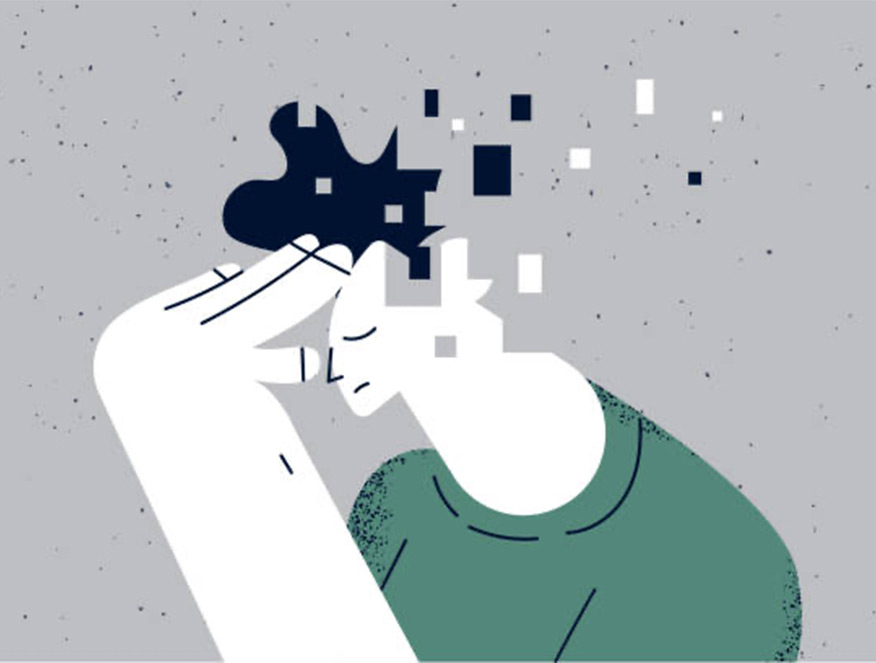
Unprocessed memories keep you stuck. Process trauma with EMDR.
What is EMDR Therapy?
EMDR (Eye Movement Desensitization and Reprocessing) therapy is an evidence-based approach that helps individuals process and heal from both major traumas (Big T) and distressing life events (small t). When difficult experiences remain unresolved, they can continue to trigger intense emotional and physical reactions, affecting daily life.
Unlike traditional talk therapy, EMDR focuses on reprocessing these memories at a neurological level. Through guided eye movements or other forms of bilateral stimulation, your brain is supported in reprocessing distressing events so they no longer hold the same emotional intensity. This allows you to integrate past experiences in a healthier way and move forward with greater ease.
Issues addressed in EMDR Therapy
- Trauma (Big T & small t)
- Anxiety
- Panic
- Depression
- PTSD
- Bipolar disorders
- Grief and loss
- Addiction
- Childhood abuse

How is EMDR Therapy different from other forms of therapy?
While traditional talk therapy often focuses on discussing and analyzing experiences, EMDR works by directly targeting how traumatic memories are stored in the brain.
However, EMDR does involve discussions to establish your history and ensure you have the emotional stability needed for processing distressing memories. Before engaging in reprocessing, we use structured EMDR protocols to enhance stabilization and build positive coping resources. This preparation phase ensures that you feel supported and equipped throughout the process.
Research shows that EMDR is highly effective in reducing the vividness and intensity of traumatic memories, often providing relief in fewer sessions than conventional therapy methods.
Benefits of EMDR
Reprocess distressing memories
Trauma remains part of your past, but it no longer holds the same emotional weight or triggers overwhelming distress.
Recovery from trauma
Break free from looping thoughts, emotional triggers, and trauma-related reactions. EMDR helps you regain control over your present experiences.
Strengthen positive resources
Beyond resolving past wounds, EMDR helps build internal strengths, fostering resilience and a more positive self-perception.
Fast and lasting healing
Compared to traditional therapy, EMDR often brings noticeable improvements in fewer sessions by addressing the root of trauma at a neurological level.
EMDR Therapy at Incontact
EMDR follows a structured eight-phase approach to ensure both safety and effectiveness:
History and treatment planning
We begin with a discussion about your history and experiences to understand your needs and determine if EMDR is the right approach for you.
Preparation
Before working on distressing memories, we focus on stabilisation. Using EMDR protocols, we enhance positive resources and teach coping strategies such as deep breathing and mindfulness to manage emotional distress.
Assessment
We identify target memories along with associated thoughts, emotions, and physical sensations.
Reprocessing
You will recall distressing memories while engaging in guided eye movements. This process allows the brain to reprocess traumatic associations, reducing their emotional intensity and enabling healthier responses.
Evaluation
We review progress, assess treatment outcomes, and ensure that distressing memories have been effectively reprocessed.
FAQ
EMDR is recommended for individuals struggling with trauma, PTSD, anxiety, depression, or distressing memories that impact daily life. It can also help those with phobias, panic disorders, and negative self-beliefs stemming from past experiences.
The duration varies depending on the individual and the complexity of their trauma. Some people notice significant improvements in just a few sessions, while others may need more time for deeper processing.
Yes. Throughout EMDR therapy, you remain fully conscious and in control. Your therapist will guide you, but you can pause or take breaks whenever needed. The process is designed to be safe and paced according to your comfort level.
Studies have shown that EMDR often works faster than traditional methods like CBT, with lasting reductions in PTSD, anxiety, and distressing memories. It has also been found to be more effective than medication for some individuals.
Your therapist will first assess your readiness and ensure you have the necessary coping strategies in place before starting the process. We prioritise stabilisation and will work with you to establish personalised resources that help you manage distress both during and after the session. Techniques such as grounding exercises and controlled breathing will be introduced to create a sense of safety and support throughout your journey. EMDR is designed to proceed at a pace that feels comfortable for you.
Yes. EMDR is effective for processing and healing from childhood trauma, including neglect, abuse, and other adverse experiences that continue to impact your present-day life.
Some people experience heightened emotions, vivid dreams, or temporary distress between sessions. These effects typically lessen as processing continues, but your therapist will guide you through managing them.
Yes. EMDR does not require full recall of traumatic events. It can still help reprocess vague or fragmented memories, reducing their emotional impact.
EMDR is generally safe, but it may not be suitable for individuals with certain conditions, such as dissociative disorders or severe mental health concerns. A therapist will assess your readiness before starting treatment.
EMDR can address both single-event trauma and complex trauma involving multiple experiences. Your therapist will tailor the approach to ensure a structured, effective healing process.











